3 Colorful Characters of Texas’ Small Towns
Something about small towns, especially small towns in Texas, demands that the people who live in them develop big personalities, if only to fill all that space left unoccupied by tall buildings, traffic jams, and professional sports teams. Every small town has its characters — the dreamers who make a place special. We talked to three of them to capture snapshots of life across the state.
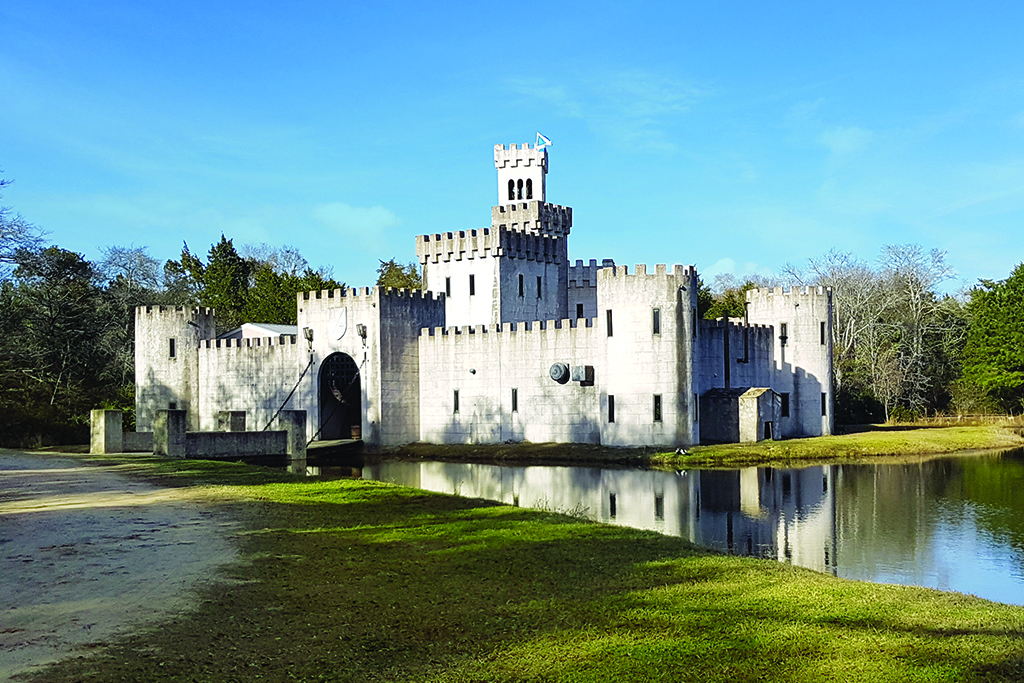
The Builder, Bellville
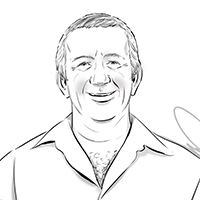
At first, all Mike Newman was imagining was a simple log cabin. He would design and build it himself on a piece of land he owned in his hometown of Bellville. Newman shared his plan with a friend, who urged caution and emphasized how much hard work it would be — but Newman ultimately concluded that it would be worth it. In the end, he’d be proud and happy. “A man’s home is his castle,” after all. “And for some reason or another that little phrase is what got my brain to churning,” he says. “I was no longer thinking of a log cabin. I was thinking of a castle.”
Bellville is a small community where neighbors know each other’s names — and now everybody knows Newman’s name. His family has been in this mostly rural area for generations, and about 37 years ago, he opened a bakery in town where local folks meet over freshly baked donuts, although weekend tourists are always welcome. People liked it here even before it became Texas castle country.
Newman had seen castles before. He lived in Europe for several years as a young man. His castle, however, would be largely an act of his own imagination — and his own handiwork. Unable to find contractors who would take on the unusual job, he started building his dream home himself with the help of a few friends. Corner turrets, an alligator-guarded moat, an operational 3,000-pound drawbridge, a towering central keep — imagine something out of a medieval fantasy. That’s what many of his visitors do.
Newman built the castle to be his home, and it is. He moved in 14 years ago, enjoying the ambiance of the Middle Ages with the modern benefits of electricity and air conditioning. “I tell people, ‘You don’t need to use the moat, we have flushing toilets,’” Newman says.
Guests are welcome to stay at Newman’s Castle for up to six days a week and for special events, with Newman himself serving lunch and acting as both affable tour guide and resident royalty. Seeing young people enjoy the castle you built might be just as rewarding as living in the castle you built. “They’ll be running around the castle chasing dragons, rescuing beautiful fair maidens,” Newman says. “The imagination factor is absolutely priceless.”
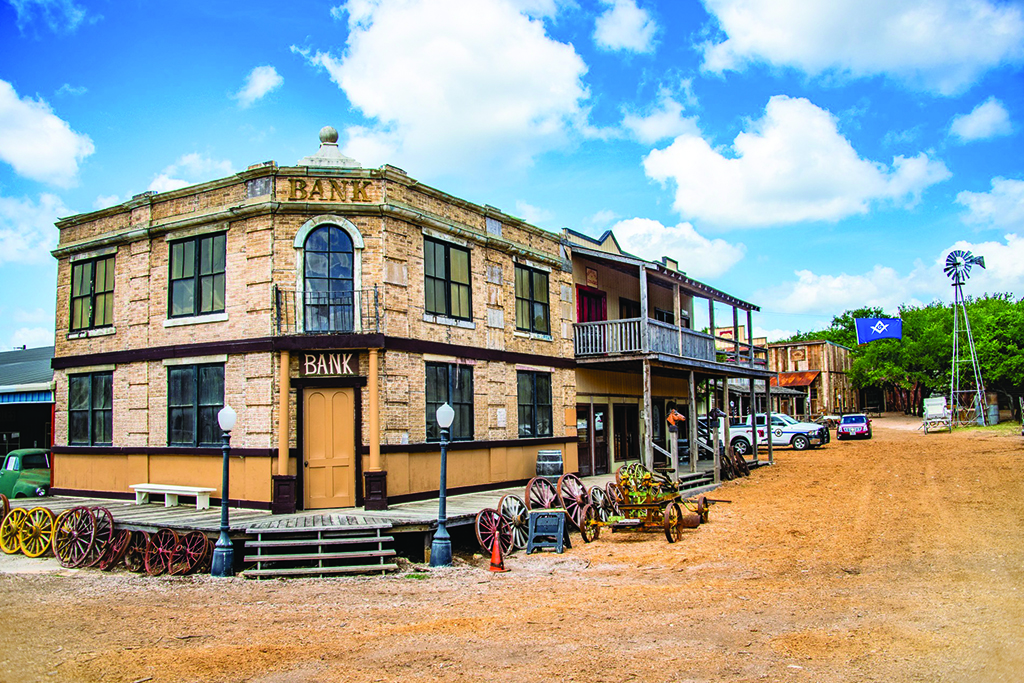
The Buggy Man, Blanco
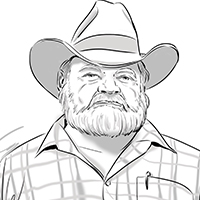
Pioneering is in Dennis Moore’s blood. Back in 1852, his family was one of the first to settle in Blanco, one of the Texas Hill Country’s most iconic small towns. You don’t, however, have to look that far back to understand Moore’s affinity for the Old West and vintage modes of transportation.
“When I was a kid, my father bought me and my brother a little Shetland pony and a little cart,” he says. “And we drove all over Blanco and the areain that little two-wheel cart.” Then, about 20 years ago, Moore’s kids were going to their high school prom at the city’s old courthouse, and he figured it would be nice to take them there in a horse-drawn carriage — so he got one. “And it just grew from there,” he says.
“It” is the Buggy Barn Museum, where Moore’s collection of more than 200 buggies, wagons, and other antique vehicles from the mid-to-late-19th century is on display. You’ve maybe seen some of his buggies already in films like “There Will Be Blood” and the Coen brothers’ “True Grit.” (Maybe you even saw “Abraham Lincoln: Vampire Hunter.”) And you may soon be seeing the museum itself in the movies.
Because rather than go to Hollywood, Moore’s inviting Hollywood to come to Blanco. His Pine Moore Old West Studio is a recreation of a late- 1800s Western town, complete with wood-paneled facades and old-timey saloons whose swinging doors may have just recently been kicked open by the quick-fingered gunslingers of the past. It’s as ready for Hill Country tourists and school field trips as it is for film shoots.
Blanco’s earliest settlers couldn’t have imagined how small Texas towns like this one would evolve. Only 50 miles from Austin and San Antonio, the area is seeing significant growth today. Yet the Buggy Barn Museum seems bound to become a fixture by keeping the past alive.
It’s a family business, for one thing. Moore’s wife, Kelly, helps run the museum and is “as bad as I am” at antique buggy auctions, he says. The couple also shares the reins with their daughter, Amanda. In true Moore family tradition, Amanda’s children, ages 10 and 14, already know how to drive their own carriages. “The grandkids really enjoy it,” Moore says. “If they don’t keep [the business] going, I’m going to be disappointed. Otherwise, they’re going to have a big garage sale, I guess.”
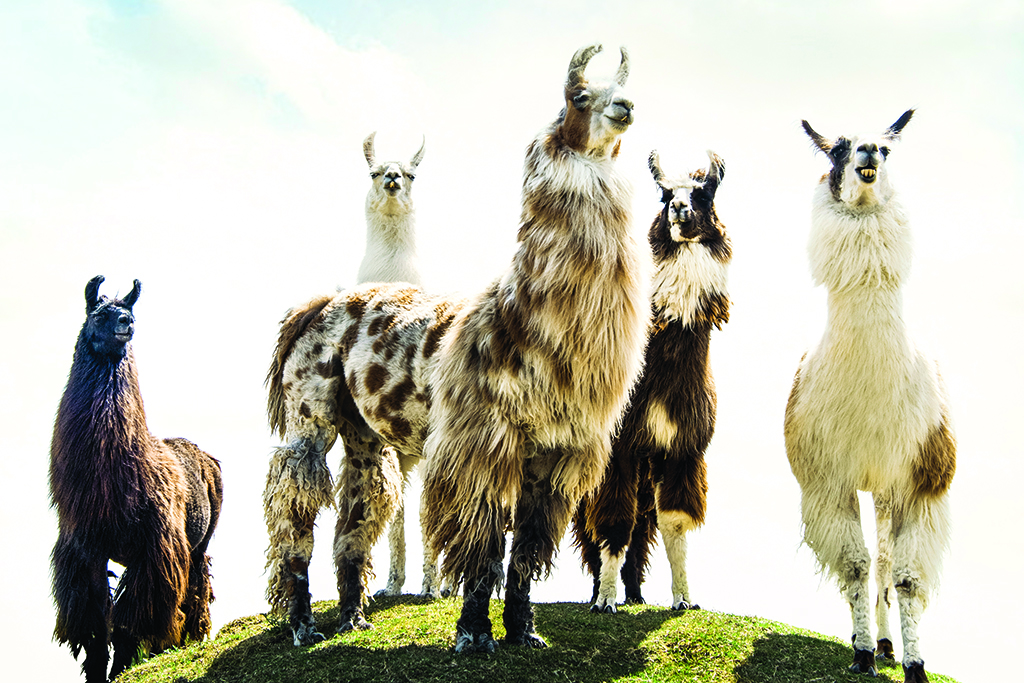
The Rescuers, Royse City
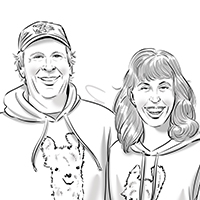
He may be the biggest celebrity living in Royse City. He’s almost certainly the only resident of this North Texas town to have appeared in his own Starz web series. (It was canceled after six episodes, but nevertheless.) He lacks spatial awareness, bumps into others often, but manages to maintain a sort of elegance. He’s big, he’s hairy, and he’s spotted. He is a llama.
Como T. Llama, one of several llamas who live at ShangriLlama ranch in Rockwall County, played the lead role in the short-lived series “Llama Cop.”
“He’s hilarious. Well, less hilarious if you own him, because he’s really hard to deal with,” says Sharon Brucato. She and her husband Paul run ShangriLlama. Her family — and their llamas — moved to Texas in 2014, attracted by the state’s low cost of living, low taxes, and low levels of traffic (compared to their hometown in Southern California). They share the grounds of a replica Irish castle with a pack of six llamas and one juarizo, a cross between a llama and an alpaca. Sharon says Como T. Llama is the class clown.
The Brucatos discovered their llama love years ago when their son was first enchanted by the llamas he saw at a California zoo. That encounter led the family toward a llama rescue league. “Before you knew it, we were all smitten,” Sharon says. “It just happened to us like it happens to millions of people.”
Visitors to ShangriLlama can sign up for “Llama Lessons,” getting up close with the llamas in the barn. On “Llama Walks,” guests join the pack for a two- and-a-half-hour stroll across the grounds, where they’re usually further won over by the charms of some of Royse City’s biggest personalities: Dalai Llama, Bahama Llama, Pajama Llama, and the rest. “I think llamas are both goofy and regal in the same moment,” Sharon says. “And that’s hard to wrap your mind around.”
Explore more of Texas’ small towns here.
Illustrations by Vincent Lucido.
© 2021 Texas Farm Bureau Insurance
